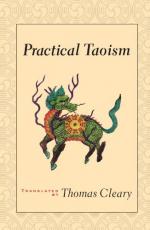|
This section contains 7,826 words (approx. 27 pages at 300 words per page) |

|
Philosophical Daoism (also spelled Taoism) dates from the classical period (fifth through third century BC) and conventionally refers to the contents of the Zhuangzi (Chuang Tzu) and the Laozi (Lao Tzu or Daode Jing/Tao-Te Ching). Some extend the term to cover less philosophical transitional texts of popularized Daoism of the Han (second century BC)—for example, the Liezi and the Huainanzi. Another movement, called Neo-Daoism, dates from the end of the Han (200-plus). The term "Daoism" is fundamentally misleading since no group, no leader, and no association linked those thinkers. The Han historians who coined the term centuries later viewed the philosophers as founders of their credulous religion, Huang-Lao, which flourished after classical philosophy was extinguished by Qin despotism (220 BCE). The main basis for the classification was thus: (1) their philosophical interest in the concept of dao (way or normative guide); and (2) relatively skeptical, anarchic, antisocial attitudes which...
|
This section contains 7,826 words (approx. 27 pages at 300 words per page) |

|


